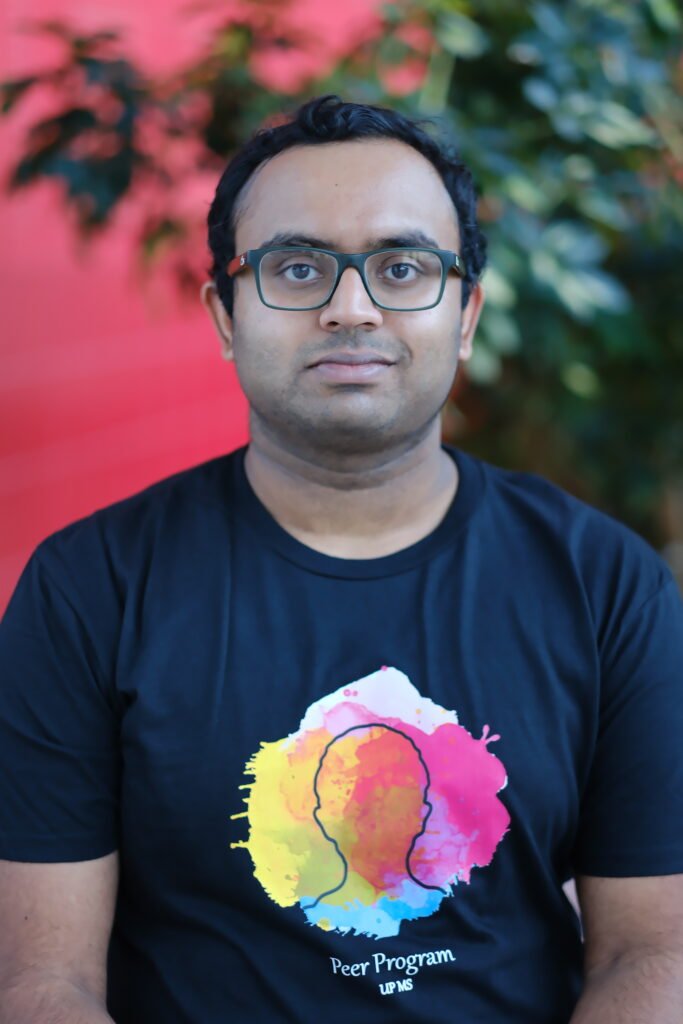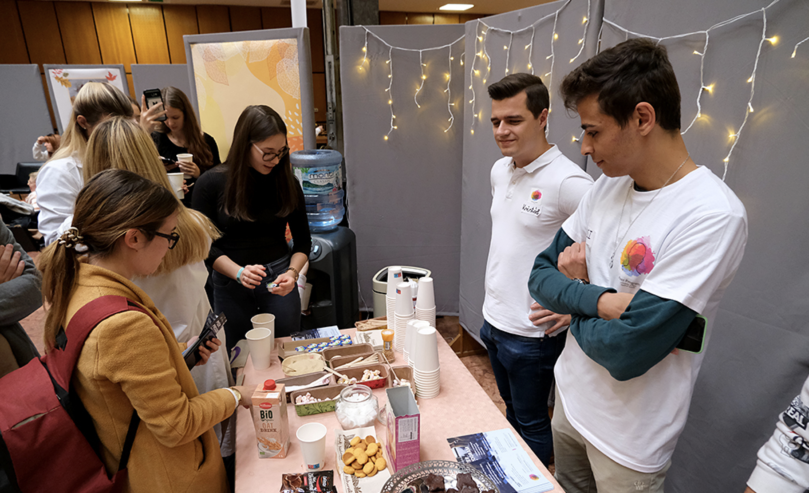Hi guys,
We’re bringing Prithvi back on the blog to talk about another extracurricular he’s involved in- the Peer programme. We spoke to him just last month about the Unibuddy programme.
Last semester, my first interview was with Edna who is also a Peer but from the perspective of students seeking help from the Peer programme. Check out that piece here. Applications for interested Peers are now open and today we will be discussing the Peer programme experience from the persecutive of a Peer to shed some light on how the system works for those interested in applying.
So let’s hear it from Prithvi!
Q: Thanks for coming back on the blog again Prithvi. So perhaps we can start with an introduction of the Peer programme for those who are unfamiliar with it.
P: Yes, so the Peer programme is a student organisation within the university, where students (usually lower years) can contact if they have any doubts/enquiries and us ‘the Peers’ address the issues and help them through it.
Q: Okay! And for how long have you been a Peer?
P: I’ve been a Peer for 2 years now.
Q: Oh that’s a while. Definitely not new to this.
P: Haha yeah, it’s been a while.
Q: So why did you join? What was the incentive for you?
P: I joined because I genuinely felt like it would be a good opportunity to help lower-year students with any issues that could come up during their studies. Personally, there were quite a few things I learnt very late in my first few years.
Q: Admirable intentions! And what exactly do your tasks entail?
P: Every semester we have a talk with the Dean’s office (particularly the VD of General Affairs and Student Welfare, Prof. Tényi) about how the programme could be modified or adjusted based on our experiences and observations from the previous semester. We also bring up any unique issues that came up and how the school could adjust its policy slightly in order to avoid the issues in the first place. We make ourselves available to communicate with students and address their problems in order to find an ideal resolution. We have events like “Chill with the Peers”, and Lemonade day at the Aula, where students can freely talk to the Peers in an informal setting and get to know us better. This helps them feel more comfortable contacting us in the future, if needed.
Q: Okay, and how are students paired up with Peers?
A: On the website, we are listed with a short description of us and as I previously said, our ‘specialisations’. Based on that, once you click the ‘Contact Us’ button and select for your particular issue, the website filters for the relevant Peers that you could be matched to and you can send a message for the Peer you end up choosing.
Q: Wow, that’s really cool. It sounds well-organised. So what do you do when you can’t help a student, in cases where you are unsure what to do?
“A good Peer has to be empathetic and caring, and most importantly has to possess a wide range of knowledge on the problems a student could face…”

P: The Peers have a group amongst ourselves, and with permission we can share the problem on that group. Usually there’s at least one other Peer who knows the solution and can assist. Also, our organisers from the student office are in the group and know what to do (especially in legal matters that may require language or local legal knowledge).
Q: How much time does it take up per week? Is it something a final year student can participate in or would it be too time-consuming?
P: Per week, I’d say an hour or so. It really depends on how many students you are dealing with and what the issues are. A final year student is an ideal participant in this programme since at that stage they would have come across a wide range of issues and are therefore thoroughly equipped to assist lower-year students. It’s also not terribly time-consuming alongside the rotational year schedule.
Q: What kind of events are the Peer programme in charge of organising?
A: Like I previously mentioned, there’s the Chill-with-the-Peers hot chocolate day, the Lemonade day, and for Christmas the Peer Santa Claus day. We also have events amongst ourselves in the Peer Programme.
Q: Alright. Let’s talk about the ideal Peer. What qualities would you say make a good Peer?
P: A good Peer has to be empathetic and caring, and most importantly has to possess a wide range of knowledge on the problems a student could face with regards to immigration issues for the internationals, issues with the R.O and NEPTUN, exams, etc.
Q: Are there any pros of joining the programme?
A: Well, you get to develop those teamwork skills, working with the other Peers. You are also able to help others, which is a big way to give back to the student community. The programme offers a scholarship which means you get paid. I wouldn’t say the money is enough to be an incentive on its own but it’s still something if that means a lot to someone.
Q: Any cons?
P: I wouldn’t really use the word “con”, but it can be a bit difficult at times when you have your own exams and commitments, and at the same have to help someone else. So I would say having good time management and a freer schedule definitely makes things easier for a Peer.
Q: Completely understandable. I would have a hard time balancing 2nd or 3rd year courses and having to attend to freshman issues in week 13 of the instructional period.
P: Exactly.
Q: So have you had any memorable experiences as a Peer?
P: There’s not one in particular that I can pick out but in general, it’s truly heart-warming when a student acknowledges that coming to us Peers was worthwhile, and even recommends us to their friends. Many students are shy and hesitant to open up to strangers, so it helps that we rely heavily on word-of-mouth within our community. In a way, it’s like a reward system—positive outcomes motivate us to keep doing more.
Q: Fantastic! And are there any new events or programmes that students can expect from the Peer programme this semester that you can share?
P: We will have more events in the main building this semester, as well as having more flyers around the school premises to keep our contact with the student community. So stay tuned! Freshmen who who missed the orientation week can still get the chance to meet us.
Q: Okay, and is there anything else you would like to add?
P: The Peers are all in different years, different faculties and different nationalities. They have their areas of specialty as well, so my advice to students is to read the bio of the peers thoroughly, so you can streamline your search about which exact peer to contact, since some will have more knowledge about the topic of interest than others. This just helps you get better information quicker. For those interested in joining the peer programme, just apply. You have nothing to lose and we welcome all our Peers with open arms. You won’t be doing this alone.
Q: Thank you so much for all this information, and for sharing your experience.
As I said previously, the call for applications is already out and closes in just a day so hurry, hurry, hurry! The deadline is this Friday, 23:59.
The official requirements state that you need to be an active student with at least two completed active semesters at any of the courses the University of Pécs Medical School or Faculty of Pharmacy. Current PhD students who received their M.Sc, M.D., D.M.D or Pharm.D. from our university are also eligible.
You will need to fill the application form together with a motivational letter (500-character min.), after which you can be called for an oral interview.
I personally think it’s a relatively low-stakes extracurricular to involve yourself in. You get to connect with fellow students and this only evolves our little PTE student bubble for the better. It also gives you the opportunity to practice some of those soft skills you will eventually need in your own career whether you go into clinical practice, research or something completely different. Take the opportunity to diversify your experience!
Author’s note: My sincere appreciation goes to Prithvi for agreeing to be a part of this blog post and giving us his perspective on this topic.
